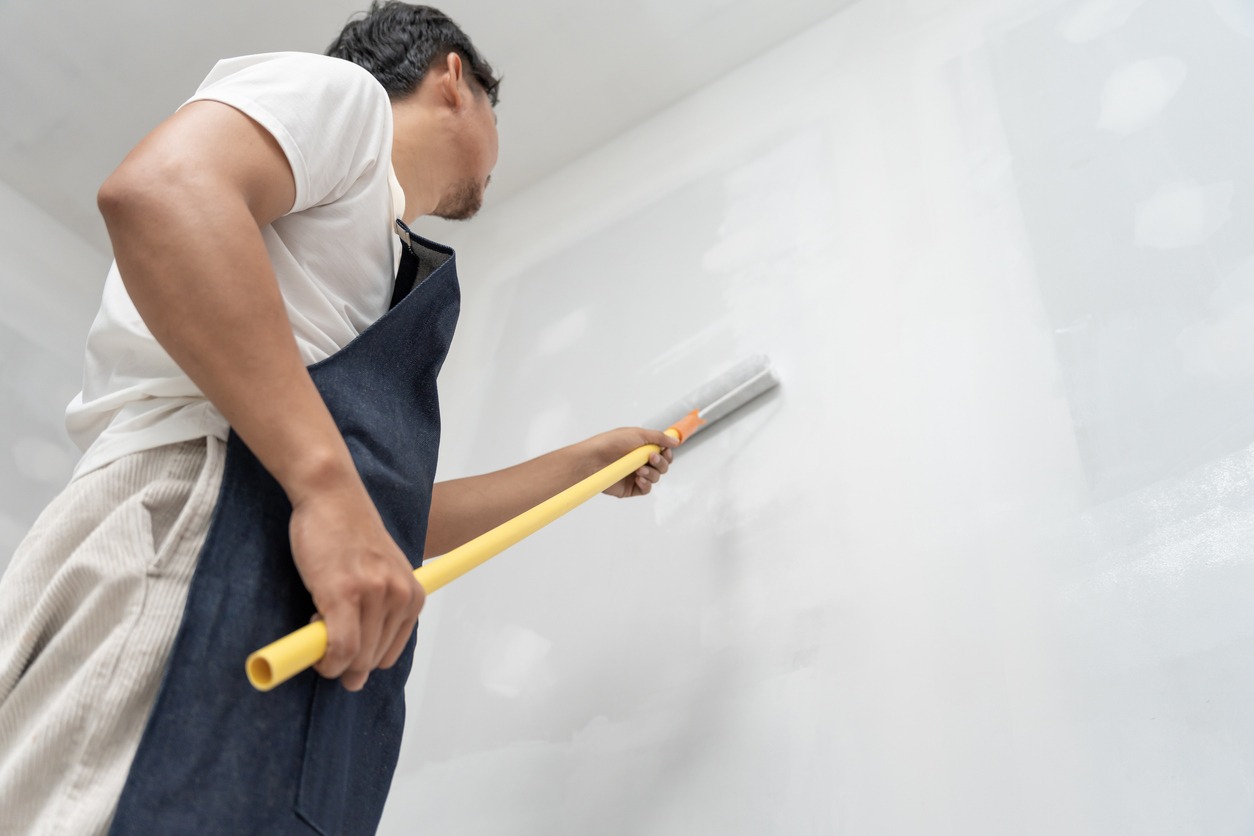Quality matters most in house painting, regardless of budget. Painting is a cost-effective way to refresh your home. Nonetheless, prioritize value over low prices to avoid wasting your hard-earned money.
You want no less than a quality paint job that’s worth the price you pay. Balancing price and quality is essential to get a bang for your buck in your next house painting project.
Balancing cost and quality
It’s no secret that many customers seek the best deals in their purchases, prompting painting contractors to undercut competitors. However, anyone who understands economics knows that a business must offer competitive prices without compromising quality to remain viable.
So, if you’re looking for cheap local residential painters, consider this oft-repeated quote: “You get what you pay for.” Cheap paint services may save you money for now, but not in the long run if you aim for quality.
But at the same time, you don’t have to pay excessively for a paint job. What matters is you get a quality paint service that doesn’t make a big dent in your budget. Otherwise, failing to do so can lead you to problems. You may end up with an unsatisfactory paint job. If that happens, call your painter back to repeat the job.
But if your painter is unwilling to return to repaint your home at no cost, the alternative is to pay someone else to do the job, which means unplanned expenses. That will be a likely scenario from hiring a cheap painter, which you would want to avoid.
Therefore, the best way to choose a painting contractor is to balance quality and cost. Consider this crucial factor, whether it’s your first or fifth time hiring someone to paint your home.
We list several reasons why balancing cost and quality is crucial when planning your house painting project:
1. Budget constraints
- Affordability: Homeowners often have a fixed budget for home improvement projects. Spending too much on painting can strain finances or reduce funds available for other necessary expenses.
- Value for money: Striking the right balance ensures that homeowners get the best value for their investment. Spending wisely without overspending is crucial for financial stability.
2. Quality outcomes
- Durability: Higher-quality paint and professional workmanship generally result in a longer-lasting finish. It means fewer touch-ups and repaints, ultimately saving money in the long run.
- Aesthetics: Quality materials and skilled labor enhance a home’s overall appearance. Poor quality work can lead to uneven finishes, peeling, and other issues that detract from the home’s visual appeal.
3. Maintenance and repairs
- Lower maintenance costs: Good quality paint and proper application can reduce the frequency of maintenance. Cheaper options might require more frequent touch-ups, increasing long-term costs.
- Preventing damage: Properly painted surfaces protect the underlying materials from damage caused by weather, pests, and wear and tear. This can prevent costly repairs down the line.
4. Health and safety:
- Non-toxic materials: Higher-quality paints often have fewer harmful chemicals and lower volatile organic compounds (VOCs), making them safer for residents, especially those with allergies or respiratory issues.
- Professional safety standards: Hiring reputable professionals ensures adherence to safety standards during the painting process, reducing risks of accidents and injuries.
5. Resale value:
- Enhanced property value: A well-executed paint job can significantly boost your property’s curb appeal and market value. Potential buyers want to pay more for a well-maintained and aesthetically pleasing residential property.
- First impressions: Quality paintwork makes a strong first impression on potential buyers, making the home more attractive and faster to sell.
Time efficiency:
- Project timeline: Balancing cost and quality helps manage the project timeline efficiently. Cutting costs too much might lead to delays if the work has to be redone or if cheaper materials cause unforeseen problems.
- Professional expertise: Hiring skilled professionals, even at a slightly higher cost, ensures the job is done correctly the first time, saving time and hassle.
Comparing estimates from painting contractors
Most homeowners who’ve had their paint work done by a professional will recommend requesting painting estimates from several contractors.
Request written estimates from at least three contractors. Compare them to help you choose the most qualified painter for your project.
Beware that the cheapest price doesn’t guarantee the best quality. Again, a business cannot just offer a lower price without sacrificing anything in the process.
Ensure estimates detail included services. A standard painting estimate should contain the following essentials:
1. Project scope
- Area to be painted: Measure the square footage of the walls, ceilings, or other surfaces.
- Number of rooms or spaces: List all the rooms or areas that will be painted.
- Details of surfaces: Include information about the types of surfaces (drywall, wood, metal, etc.).
2. Labor costs
- Hourly rates: Include the hourly wage for each painter and the estimated hours of labor.
- Crew size: Determine how many painters will be working on the project.
- Prep work: Account for time spent on surface preparation (cleaning, sanding, priming).
3. Materials costs
- Paint: Specify the type, brand, and quantity of paint needed.
- Primer: Include the primer, if necessary, with type and quantity.
- Supplies: Brushes, rollers, tape, drop cloths, ladders, etc.
- Other materials: Any additional materials like caulk, spackle, etc.
4. Duration
- Estimated timeframe: Provide a start and completion date, considering potential delays.
- Work hours: Specify daily working hours and any weekend or overtime work.
5. Surface preparation
- Cleaning: Costs for washing walls or surfaces.
- Repairs: Costs for repairing holes, cracks, or other damage.
- Priming: If priming is needed, specify the areas and costs.
6. Painting details
- Number of Coats: Indicate how many coats of paint will be applied.
- Techniques: Note special painting techniques (e.g., faux finishes, textured painting).
7. Access and setup
- Access issues: Include costs for scaffolding, lifts, or other access equipment if necessary.
- Setup and cleanup: Time and materials for protecting non-painted surfaces and cleaning up.
8. Miscellaneous Costs
- Travel expenses: If the job site is far from the painter’s base of operations.
- Permits: Any necessary permits or inspections.
- Waste disposal: Costs for disposing of old paint, packaging, or other waste.
9. Insurance and licensing
- Insurance coverage: Proof of liability insurance and workers’ compensation.
- Licensing: Any required state or local licenses.
10. Terms and conditions
- Payment schedule: Breakdown of payment terms (deposit, progress payments, final payment).
- Warranty: Information on the warranty for the workmanship and materials.
- Exclusions: List anything else the estimate doesn’t include.
11. Customer preferences
- Color Selection: Any specific colors or finishes chosen by the customer.
- Brand Preferences: If the customer prefers certain paint brands or types.
12. Contingencies
- Unforeseen Issues: Potential additional costs for unexpected problems.
By including these elements in a painting job estimate, you ensure a thorough and transparent proposal, reducing the risk of misunderstandings and ensuring that both parties are clear about the scope and costs involved.
Conclusion
Balancing cost and quality in a house painting project ensures that homeowners get a durable, aesthetically pleasing finish without overspending. It also helps maintain the home’s value, reduces long-term maintenance costs, and ensures the safety and well-being of the residents.
When planning your house painting project, consider quality, cost, reputation, and estimates from your local painting companies.
Don’t settle for anything less. Trust the professionals from Custom Painting, Inc. to elevate your space into a masterpiece that exceeds your expectations! Call our paint experts at 925-294-8062 or complete our contact form to schedule a free consultation for your next paint project.



